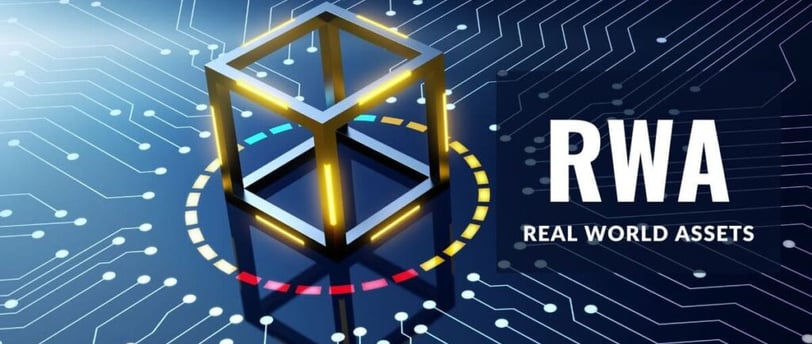The Future of Tokenization
Real-World Assets, Loyalty Programs, and Community Interaction
9/11/20242 min read


As the world moves toward a decentralized future, tokenization is transforming industries across the globe. The ability to tokenize real-world assets, enhance loyalty programs, and foster deeper community interactions is becoming a game-changer. For Web3 consultancies like Gettone, understanding these shifts is essential for guiding businesses into this new digital landscape.
What is Tokenization?
Tokenization is the process of converting ownership or rights to an asset into a digital token on a blockchain. These tokens can represent anything from physical assets, like real estate, to intangible ones, like intellectual property or membership rights in a community. The advantages include enhanced liquidity, transparency, and the democratization of access to various assets.
Real-World Assets: Bringing Tangibility to Digital Tokens
One of the most impactful use cases of tokenization lies in real-world assets. Whether it’s real estate, commodities, or even artwork, blockchain technology allows these assets to be divided into smaller, tradeable digital tokens. This opens doors for a broader base of investors who might not have been able to afford entire assets but can now own fractional shares.
Example: Real Estate Tokenization
Real estate tokenization is gaining traction as investors are able to buy fractions of properties rather than entire buildings or land parcels. A prime example is the St. Regis Aspen Resort in Colorado, which tokenized shares of the property using blockchain technology. Investors could purchase these tokens, allowing them to own a portion of a luxury hotel, and in return, they could receive dividends from the property’s income.
Loyalty Programs: Revolutionizing Customer Engagement
Tokenization also revolutionizes loyalty programs, making them more dynamic and interactive for customers. Traditionally, loyalty programs lock customers into a single brand ecosystem. With tokenized systems, loyalty points or rewards can be issued as tokens that can be traded, sold, or redeemed across multiple brands.
Example: Hugo Boss
Hugo Boss has been experimenting with blockchain technology to enhance its loyalty programs, offering unique, token-based rewards. By integrating tokenization into their customer loyalty system, Hugo Boss allows customers to earn digital rewards for purchases or brand interactions. These tokens can be used to unlock exclusive products, limited-edition items, or special experiences, adding a layer of interactivity and exclusivity that traditional loyalty programs can’t match.
Community Interaction: Fostering Decentralized Ecosystems
In the Web3 ecosystem, community interaction is a core focus. Tokenization enables brands to build stronger communities by giving users ownership or governance rights through tokens. These tokens give members the ability to vote on important decisions, access exclusive content, or trade within a brand's ecosystem.
Example: Decentralized Autonomous Organizations (DAOs)
DAOs are decentralized communities that run on blockchain technology, allowing token holders to make decisions about the future of the organization. An example is MakerDAO, which governs the issuance of DAI, a stablecoin. Community members with governance tokens can vote on key decisions, making the entire process transparent and giving users a direct role in shaping the project.
Why Tokenization Matters for the Future
The potential for tokenization is immense. By democratizing access to real-world assets, improving customer engagement through loyalty programs, and enhancing community participation, tokenization represents a powerful tool for creating more inclusive, transparent, and efficient systems.
For businesses ready to explore tokenization, the key lies in partnering with experts who understand the complex Web3 ecosystem.
Key Takeaways:
Real-world assets: Tokenization allows fractional ownership of assets like real estate and art.
Loyalty programs: Tokenized rewards create more dynamic, tradeable ecosystems, enhancing customer loyalty.
Community engagement: Tokenization enables decentralized governance and stronger, more interactive communities.
The future of tokenization is just beginning. From everyday transactions to high-value investments, it will reshape how we interact with assets, brands, and communities.
Copyright Gettone 2022/2024 hello@gettone.io
